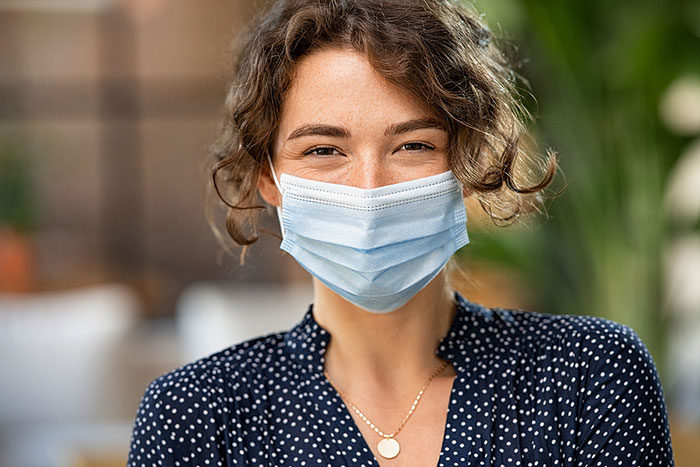SKIN TALK
Care of your skin during the pandemic and mask wearing.
Despite the fact that no one is seeing your face, now is not the time to ignore the care of your skin. Acne, left untreated can scar, the stress of the pandemic will eventually show on our faces with clearly etched rhytids and we are now one year older under our masks. Maskne is a new word in the urban dictionary to describe our 2020 mask-related skin afflictions.
Maskne can involve various skin conditions such as acne, rosacea, contact dermatitis and folliculitis. In addition, chafing and irritation. Factors leading to maskne include clogged pores, dead skin cells on your face, oil and bacteria. Masks cause heat, friction and trapped humidity. Some masks are pretreated with chemicals, contain dyes or rubber and can feel rough on the skin. Similarly, cloth masks that are washed in scented detergents can cause allergic reactions.
Wash face twice daily. Use a gentle, fragrance-free cleaner like Cerave. If skin is acne -prone use a 2-5% benzoyl peroxide (higher concentrations can irritate the skin) or salicylic acid wash to decrease bacterial count on the skin. Let Benzoyl Peroxide sit on the skin for 2-3 minutes before rinsing. Another product which is used around the eyelids is Avenova which can also be sprayed on the entire face. Avenova is pure hypochlorous acid 0.01% which kills bacteria, viruses and fungi.
Use a moisturizer always. Applying a non- comedogenic moisturizer can help hydrate your skin. A moisturizer also serves as a barrier between your skin and the mask. Skin that is dry becomes irritated and prone to allergic reactions due to a decreased skin barrier. When your skin becomes dry, your body makes more oil. The extra oil can clog your pores and may lead to more breakouts.
The occlusive nature of the mask can cause our skin to be irritated by products we have always used such as antiaging creams or after shave.
Skip the makeup when wearing a mask. If makeup is necessary, use a non-comedogenic product.
Frictional or irritant dermatitis can be relieved by minimizing pressure of the mask on the face or using thick barrier creams such as zinc oxide to protect the skin from chafing. Itchy contact dermatitis can be treated with a mild topical steroid such as 1% hydrocortisone. Use sparingly on the face and do not use any steroid stronger than OTC hydrocortisone 1% as it can cause atrophy.
Exfoliate regularly to increase cell turnover and remove excess dead skin cells which clog pores. Having a buildup of dead skin cells on your face may also make your skin look dull, flaky or prematurely aged. I recommend using a retinoid cream at night to regularly exfoliate. This will prevent blackheads and similar bumps from forming. Retinoids can irritate the skin so start slowly (1-2 times per week and gradually increase frequency if skin tolerates.) Other exfoliants include glycolic acid, motorized facial brush and facial scrubs.
Masks and other PPE can cause pressure injuries on the face and head. Staff have reported ear and scalp numbness (neuropraxia) for several days after continued post auricular pressure. Areas at risk for pressure injury include the forehead, cheekbones, nasal bridge and behind the ears. Pressure injuries may appear as non-blanchable reddened areas on the face, blisters and/or open wounds. Cleveland Clinic’s wound care team recommends using some type of transparent dressing each day to protect at-risk areas. They recommend cutting squares, rectangles or circles and applying over areas where the mask sits over the irritated facial prominences. These are best applied over clean, dry skin. Leave in place during entire shift or reapply as needed and gently remove at the end of the day. Alleviate post auricular soreness by using a variety of masks and anchors (ear elastic, tied, headband with buttons).
Taking a 15 minute mask break every 4 hours is recommended.


Recent Comments